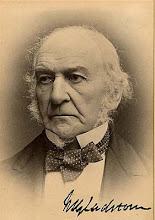My wife and I were federally stimulated last Friday, to the tune of $1200. The U.S. Treasury sent me a very colorful check through the mail. Of course I accepted it (and deposited it in my savings account), but I have a couple reservations:
1. The FDR effect
In times of trouble, democratic governments must seem to be "doing something" about the problem. Otherwise, voters may get upset and take out their frustration at the ballot box. Questions about the validity of any policy perscription take a backseat to political expediency.
The 2008 federal stimulus package fits nicely into this framework. Basically, both parties supported the idea of a fiscal stimulus (a direct transfer payment from the federal treasury to American taxpayers) without question. The Congressional debate centered on two questions: 1) how much do we borrow now to pay ourselves; 2) who will get it.
Not much consideration was given to whether a federal transfer payment is a good idea. Is it?
2. Economic theory versus the stimulus
Essentially, this question can be addressed by quickly defining two competing ideas in public economics. Keynesianism and Rational Expectations. Named after a famous economist, Keynesian economics focuses on the fiscal tools available to the government, specifically the spending power of the government. Although more broad in its application, rational expectations economists also investigate public questions using their philosophy: the (in)convenience of rationality.
Keynes believed that the economic cycle (the regular pattern of booms and busts throughout economic history) could be smoothed by the power of government intervention. In times of economic difficulty, the government could increase public spending to boost demand and overcome the rough patch. Thus, the 2008 stimulus.
Economists in the school of rational expectations would ask whether a simple transfer payment can actually increase demand: if an individual knows there's a downturn, will he rush out to spend his check, or save it in case of real trouble (such as expected future tax payments required to pay off the additional debt the govt used to finance the stimulus in the first place)? Additionally, even if some in fact decide the check is burning a hole in their pocket, will those businesses that see post-stimulus revenues decide to increase wages, or hire more employees? Doubtful, since the stimulus does not represent a real change in market outlook.
Which explanation sounds more reasonable to you?
Unfortunately, Americans were not treated to a meaningful debate. Republicans called for a massive transfer payment (although negligible in comparison with the size of the economy it was intended to boost). Democrats tried to target it to the unemployed and those that don't pay taxes, two groups unlikely to boost economic productivity:the true source of prosperity.
On the other hand, it could be worse. What if "do something" meant doing more?
Copyright © 2008 TCE.
Monday, June 02, 2008
Subscribe to:
Posts (Atom)

